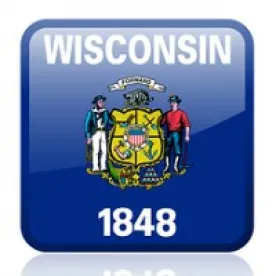Introduction – COVID-19 Is Putting Unprecedented Pressure on Wisconsin Businesses
COVID-19 is causing massive economic upheaval and uncertainty which impacts businesses of every size and in all sectors of the Wisconsin economy. Currently, many Wisconsin businesses are working together and are showing solidarity about fighting the virus by extending deadlines for deliveries of goods, completion of projects, and payments.
But the once healthy Wisconsin economy is starting to feel pain, and the full economic symptoms of COVID-19 have yet to fully develop. Much like the virus itself, financial maladies are already spreading.
The Impact of COVID-19 Is Being Felt Across All Sectors of the Wisconsin Economy
Wisconsin businesses that cater to the public have virtually ceased operations. Hospitality, restaurants, entertainment, sports, and retail are seeing massive drop-offs in revenues. This, in turn, strains their ability to pay lenders, landlords, vendors and employees.
In the industrial and manufacturing sector, supply chains dependent on international trade are strained and some plants have been shuttered. The construction sector, having made a full recovery from the Great Recession, faces risks associated with timely completion of projects, and shortages of labor and materials.
Contracts Will Not Be Performed Due to COVID-19 – Causing Disputes
As a result of the virus, contracts will not be performed, products will not be delivered and invoices will be unpaid. Wisconsin businesses, and eventually Wisconsin courts, will be forced to grapple with disputes arising in the wake of the virus. Although the virus is unprecedented, Wisconsin courts can be expected to apply long-established legal principles to evaluate claims and defenses arising out of the COVID-19 pandemic.
Legal Principles Wisconsin Courts Will Apply to Disputes Arising From COVID-19
-
Force majeure
A party may be excused from performance under the contract due to force majeure when non-performance results from causes outside that party’s control. The Wisconsin Court of Appeals has reasoned: “Force majeure clauses extend [agreements] only when the non-performance is ‘caused by circumstances beyond the reasonable control of the [party] or by an event which is unforeseeable at the time the parties entered into the contract.’” Goldstein v. Lindner, 2002 WI App 122, ¶ 31, 254 Wis. 2d 673,648 N.W.2d 892. In Goldstein, a mineral rights lessee argued that a combination of private and governmental inaction constituted force majeure under a lease. The Court held in part that the lessee’s failure to secure a drilling permit was not a force majeure event under the lease’s force majeure clause because the clause’s conditions were not satisfied, including the requirement of notice that a force majeure event described in the lease occurred.
In McMillan v. Fox, 90 Wis. 173, 62 N.W. 1052 (1895), parties agreed to the purchase and delivery of lumber. Certain piles varied in price. After a fire (not due to fault of either party) destroyed higher valued lumber, the purchaser demanded delivery of the remaining lumber and sought damages for the balance of the contract price. The Court held that the purchaser could not recover damages due to the non-delivery of lumber that was destroyed by the fire, because the fire was a force majeure event.
-
Impossibility, Impracticability, and “Acts of God”
Unlike a force majeure event, which is often limited to the language and context specified in the parties’ contract, a party’s performance under a contract may be excused because of unforeseen or uncontrollable circumstances beyond a party’s control that make performance impossible or impracticable under any circumstance.
Unforeseen events such as fire, storms, drought, or sickness are normally referred as “Acts of God.” See Handicapped Children's Educ. Bd. of Sheboygan Cty. v. Lukaszewski, 112 Wis. 2d 197, 203, 332 N.W.2d 774 (1983); Gill v. Benjamin, 64 Wis. 362, 370, 25 N.W. 445 (1885).
Wisconsin’s Civil Jury Instructions also provide examples of other circumstances that may make performance impossible, including government actions. Legislative enactments or judicial, executive or administrative orders may excuse a party from performance under a contract. Governor Evers’ Emergency Order #12 (“Safer at Home Order”) may constitute such an order.
However, a party’s performance may not be excused due to an “Act of God” or government action if the parties’ contract shows the parties intended to be held to their agreement in any event.
-
Frustration of Purpose
Another long-established legal principle where a party may be excused from performance – even if the contract may be literally performed – is where the purpose of the parties’ contract may no longer be accomplished or have little value due to outside circumstances. Similar to the legal principle of impossibility, frustration of purpose differs from impossibility because nothing prevents either party from performing.
Wisconsin courts have held that the duty to perform will be excused due to frustration of purpose if: “(1) the parties [sic] principal purposes in making the contract is frustrated; (2) without that party's fault; (3) by the occurrence of an event, the non-occurrence of which was a basic assumption on which the contract was made.” Chicago M. St. P. & P. RR. v. Chicago & N.W. Transp. Co., 82 Wis. 2d 514, 523-24, 263 N.W.2d 189 (1978); see also Ryan v. Estate of Sheppard (In re Estate of Sheppard), 2010 WI App 105, ¶ 13, 328 Wis. 2d 533, 789 N.W.2d 616.
-
Subsequent Action or Inaction of the Parties
The parties’ subsequent actions or inactions may also provide the terms of a contract to be given a different effect or the effect as intended. Wisconsin courts have reasoned “in order for the subsequent action to remove any indefiniteness, the action must include some interpretative conduct by both parties, consisting either of the rendition of some performance by each one or by the willing acceptance by one of them of such a performance rendered by the other.” Metropolitan Ventures, LLC v. GEA Assocs., 2006 WI 71, ¶ 26, 291 Wis. 2d 393, 717 N.W.2d 58. In Metropolitan Ventures, the Wisconsin Supreme Court held that although the party’s contract to purchase a business partnership and building owned by the partnership was vague as to a financing contingency, the subsequent actions by the parties demonstrated that both parties mutually agreed to acceptable financing terms. Parties may agree that a contract is to be given a different interpretation, or effect where the contract is indefinite, based on the occurrence of an event that was unforeseen or not within the control of the parties.
-
Uniform Commercial Code (“UCC”) – Sale of Goods
Wisconsin’s UCC applies to sales of goods between businesses. The UCC, codified as Chapter 402 of the Wisconsin Statutes, also provides authority and guidance for when a contract is unable to be performed as written. For example, under Wis. Stat. § 402.613, if the goods made and purchased under the agreement suffer from a casualty without fault of either party before the risk of loss passes to the buyer or there is a “no arrival-no sale” term, then if the loss is: (1) total, the contract is avoided; or (2) partial or the goods no longer conform to the terms of the contract, the buyer at its option may avoid the contract or accept the goods with an allowance from the contract price.
A seller may claim excuse due to a delay in delivery or non-delivery where the performance agreed to “has been made impracticable by the occurrence of a contingency the nonoccurrence of which was a basic assumption on which the contract was made or by compliance in good faith with any applicable foreign or domestic governmental regulation or order whether or not it later proves to be invalid.” Wis. Stat. § 402.615(1). If any of these causes affect the seller’s ability to only partially perform, the seller is required to allocate production and deliveries among its customers but may include its regular customers not currently under contract as well as outline its own requirements for further manufacture of the goods. The seller must notify the buyer of the delay or non-delivery, and in cases of allocation the estimate amount to be made available for the buyer.
-
Duty of Good Faith and Fair Dealing
Under Wisconsin law, every contract requires a duty of good faith and fair dealing between the parties. Wisconsin courts have defined “good faith” as “honesty in fact in the conduct or transaction concerned, that is, an honest intention to abstain from taking unfair advantage of another, through technicalities of law, by failure to provide information or to give notice, or by other activities which render the transaction unfair.” Foseid v. State Bank of Cross Plains, 197 Wis. 2d 772, 793, 541 N.W.2d 203 (Ct. App. 1995). The rule is intended to protect parties against arbitrary or unreasonable conduct. A duty of good faith also applies throughout various provisions in the UCC. “Good faith” under the UCC means “honesty in fact and the observance of reasonable commercial standards of fair dealing in the trade.” Wis. Stat. § 402.103(1)(b).
Wisconsin Businesses Faced With COVID-19 Disputes
It is certain COVID-19 will generate litigation where the above defenses are raised. Far less certain is the reception COVID-19 defenses will receive in Wisconsin courts. As with all commercial and business litigation, the specific facts of each case, the industry in which it arises, and the terms of the parties’ agreement are critical. Moreover, Wisconsin’s case law is limited and many cases were decided long ago and under different circumstances. Accordingly, how Wisconsin courts will rule in any specific dispute related to the unique circumstances caused by the COVID-19 virus is uncertain. For these reasons, Wisconsin businesses faced with disputes and litigation arising out of the COVID-19 pandemic may wish to involve their counsel in a careful evaluation of their contracts and assessment of their legal rights.




 />i
/>i

